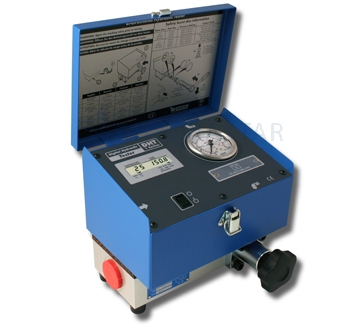Keeping a hydraulic system running smoothly requires high levels of accurate diagnostics. Whether for preventative maintenance or reducing downtime in a crisis, speed and precision are crucial. Many people wonder whether investing in a digital hydraulic tester is worth it. Based on our feedback, here are the pros, the cons, and the overall verdict.
The Pros
1) Keeping It Clean
Digital hydraulic testers have a built-in loading valve and safety discs. The benefit of this is that oil is easily bypassed in the event of a pressure overload. This all happens internally, so there are no costly spills or environmental risks.
2) More Information
Like most digital devices, digital hydraulic testers are designed to convey large volumes of information. A temperature, flow, bar, psi, and MPa reading are standard, but extra features include capacities, such as memory functions, that take the legwork out of remembering upper and lower pressure readings. The aim of this is that diagnostics are rapid.
3) Steady Readings
Anyone who has achieved a headache from navigating an analogue tester in high vibration will appreciate this feature. Digital hydraulic testers keep the image steady so that readings can be taken more quickly. The easy-to-read dial is also backlit, which is ideal when working in dark or complex spaces.
4) Choice
The digital market is a competitive one, which means that there are digital solutions tailored to any precise need. At Hydrastar, we recommend Webtec Hydraulic Products. These have a range of excellent guarantees and support, and benefit from being particularly robust and reliable.
5) Return On Investment
The efficiency, accuracy, and time saving features of digital hydraulic testers mean that they make a speedy ROI. The productivity enhancing capacity of digital testers are primarily focused upon error reduction, which significantly reduces downtime.
The Cons
1) Forgetting To Charge It
Digital devices need to be charged. There are many power options – such as battery, solar, or USB – but when compared to analogue, any digital option has to take this into account. Anyone who forgets to regularly charge their phone may have the same problem with a digital device, so this needs to be planned for.
2) Adjusting To New Tech
The digital option is extremely easy to use, but can feel unusual to someone who has spent decades working with analogue systems. Some training may be required.
The Verdict
When it comes to comparing digital and analogue hydraulic testers, it really comes down to an issue of precision. Due to natural environmental issues – such as vibration – analogue testers can never quite achieve the accuracy demanded by hydraulic testing. Digital overcomes this problem. The instrumentation precision combined with built-in safety features mean that there is a strong correlation between digital hydraulic testers and reduced downtime. This means that they are a sensible investment in terms of their productivity returns.
If you would like more information about digital hydraulic testers, please call Hydrastar on 01353 721 704.



